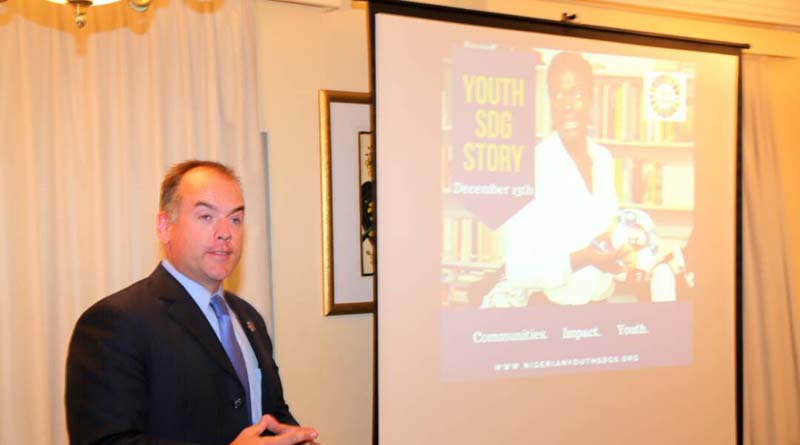INTERVIEW: “Youth power can drive the actualisation of the SDGs” – Mitchell Toomey
Mitchell Toomey is the global director of the United Nations SDG Action Campaign, a special initiative of the UN Secretary-General administered by the UN Development Programme (UNDP), mandated to support the UN system-wide and the Member States on advocacy and public engagement in implementation of the Sustainable Development Goals (SDGs)

How important are the Sustainable Development Goals (SDGs) to Africa, in terms of achieving sustainable development in the region?
I think the Sustainable Development Goals are everyone’s responsibility and Africa deserves to achieve the SDGs just like other regions deserve to do so; we had the MDGs and countries like Nigeria were an incredible success in rallying people around some specific goals.
Moreover, the SDGs represent a much more ambitious agenda; they are not just about people’s survival but actually about ensuring people thrive. So, Nigeria is an obvious leader in Africa and with such a large youth population and potential we want to make sure the SDGs work here so that Nigeria can lead other countries in Africa.
We are already 2 years into the implementation of the SDGs, how has Africa fared in terms of achieving the goals?
Well, I think every country is different, every country has their own development plans and one thing we have learnt is that you can’t just bring something new and expect everyone to enforce it immediately; already there is the Africa Agenda 2063, which is a very important agenda that came before the SDGs. So, we have to be humble enough to understand that people already have their own plans.
Two years on, we are very happy to see how governments have taken them very seriously; they have set up departments and commissions to make sure there is some accountability in the implementation of the SDGs. Many countries have come to New York to talk about their action plans and what they want to do. However, two years on we can say the goals are still in their very early days.
The next few years will really determine how much progress we will see in terms of implementation of the goals. So, in 2019 the heads of state of all countries will gather again in New York to review the progress we have achieved in 4 years – it will be an incredibly important period. Therefore, we are confident that by then many countries would have achieved some of the progress necessary for the success of the goals.
Two key sectors of the world’s population i.e women and youth are very vital to the success of global development frameworks like the SDGs. How do you think given women and youth the opportunity to key into the implementation of the Global Goals will aid the successful realization of the goals?
Well, one reason the youth are such a focus of the goals is that the youth themselves helped designed the goals; when we were deciding what the goals would be we challenged young people from around the world to help us decide what the goals would be and they responded in amazing ways: by telling us what was happening in their communities and hence what the goals should be.
As such, most of the goals are youth-centered which means the youth can relate to them; we make sure that the icons are very friendly and easy to understand so that even children can understand these goals.
The reason is we are in a period of tremendous change in the world and young people are the future; the ability to access information, find networks of people, and learn new things using digital tools are what matters. It is a much different world than it used to be and young people are the ones who understand it best so we need to follow their lead in making these goals a reality.
And women have always played a very critical role in society even though sometimes such a role is marginalized outside of the traditional economies but we believe by giving everyone in the society the opportunity to participate we will achieve explosive growth which will lead to development in all countries.
Agenda 2030 is a very ambitious development framework that hopes to change the face of the world particularly here in Africa, around gender, education, governance, and public health. Where do you hope to see Africa by the year 2030 in terms of achieving these goals?
It is hard to generalize for Africa as different countries are at different starting points; different countries are progressing in different ways. We have to be very honest that different countries will progress in different ways.
Imagine how much the world has changed in the last 15 years, imagine all the things we never dreamed we could do like standing here and having this conversation with you and getting it out on the internet for everyone to see, we just would not even have thought it would be possible. So, I think if anything the goals aren’t ambitious enough to match the ambitions of young people around the world.









